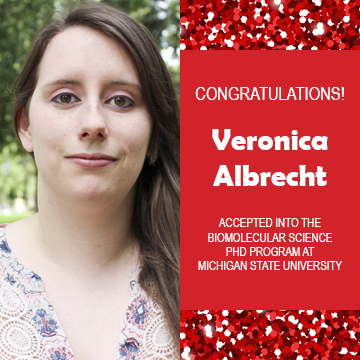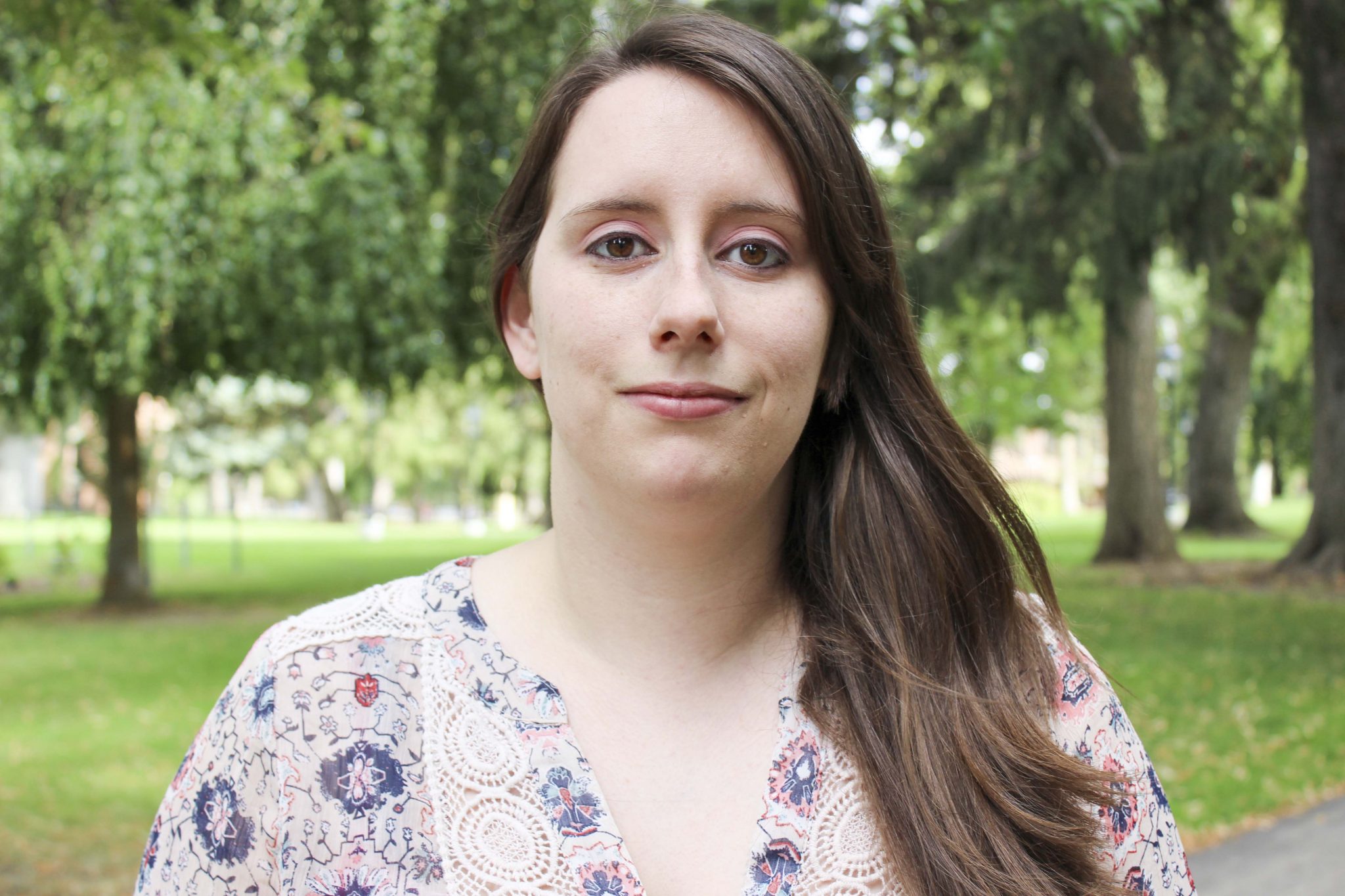Veronica Albrecht
Veronica Albrecht graduated in 2018 with a major in Biology. She completed her McNair research with mentor Dr. Andrea Castillo on the fecal coliform levels in the Cannon Hill Pond. To learn more about Veronica’s research read her abstract below or check out her website! While she was an undergrad she reported her findings at three conferences; the National Conference of Undergraduate Research (NCUR) 2017, the West Coast Biological Sciences Undergraduate Research Conference (WCBSURC) 2017, and the EWU Symposium 2017. Veronica was accepted into the University of Wisconsin, Madison’s MS program in Bacteriology, as well as EWU’s MS in Biology, where she attended with funding through a Biology Teaching Assistantship.
As a graduate student at EWU, Veronica presented two pieces of research at the 2020 EWU Virtual Symposium: Characterizing Two cagPAI Located Small RNAs in Helicobacter pylori and Gene Expression Regulation of sRNA Hpnc2525 in the Clinically Relevant Helicobacter pylori cagPAI Genomic Region.
After completion of her Master’s at EWU, she began attending the Biomolecular Sciences Gateway PhD Program at Michigan State University in Fall 2020, where she was accepted with full funding.
McNair Research Faculty Mentor: Dr. Andrea Castillo – Biology
Research Title: Fecal Coliform Levels In Stormwater Fed Cannon Hill Park Pond Significantly Increased Following Rain Events
Abstract: Cannon Hill Park Pond (CHPP), Spokane, WA is a residential pond designed by the Olmsted Brothers in the early 1900s and has historically been maintained by the continuous input of potable water (~14 million gallons/year, City of Spokane Water Quality Report Cannon Hill). In 2010, as part of the Lincoln Street Spokane Urban Runoff Greenways Ecosystem project, a vegetated bio-filtration cell (storm garden) was designed to capture and filter storm water and direct its flow to CHPP via a storm drain. This project was meant to mitigate storm water and sanitary sewage overflow during storm events and contribute to CHPP water levels (estimated 315,000 gallons/typical year). While the City of Spokane has conducted some chemical analyses of CHPP, they have yet to conduct any fecal coliform (fc) testing. We were interested in comparing fc levels in CHPP to levels allowed by the Washington State Environmental Protection Agency (WA-EPA) and in determining if fc levels increased with rain events as a result of storm water input from the storm drain. To address our questions, we used a membrane filtration method and cultured filters on mFC agar to identify fc bacteria. We sampled three different pond sites: directly in front of the storm drain, from the potable water spigot, and an offshore point >10m from the storm drain. We sampled CHPP weekly for 11 weeks (8 non-rain events, 3 rain events) and determined that fc levels at the storm drain, but not the offshore site, exceeded WA-EPA levels (10% samples exceed 400 fc/100ml). Additionally, we found that there was a significant increase in fc detected at the storm drain and offshore sites following rain events (p<0.0001 and p<0.0005, respectively). We never detected fecal coliforms in our potable water samples.

18 EWU McNair Scholars Present at EWU Virtual Symposium




